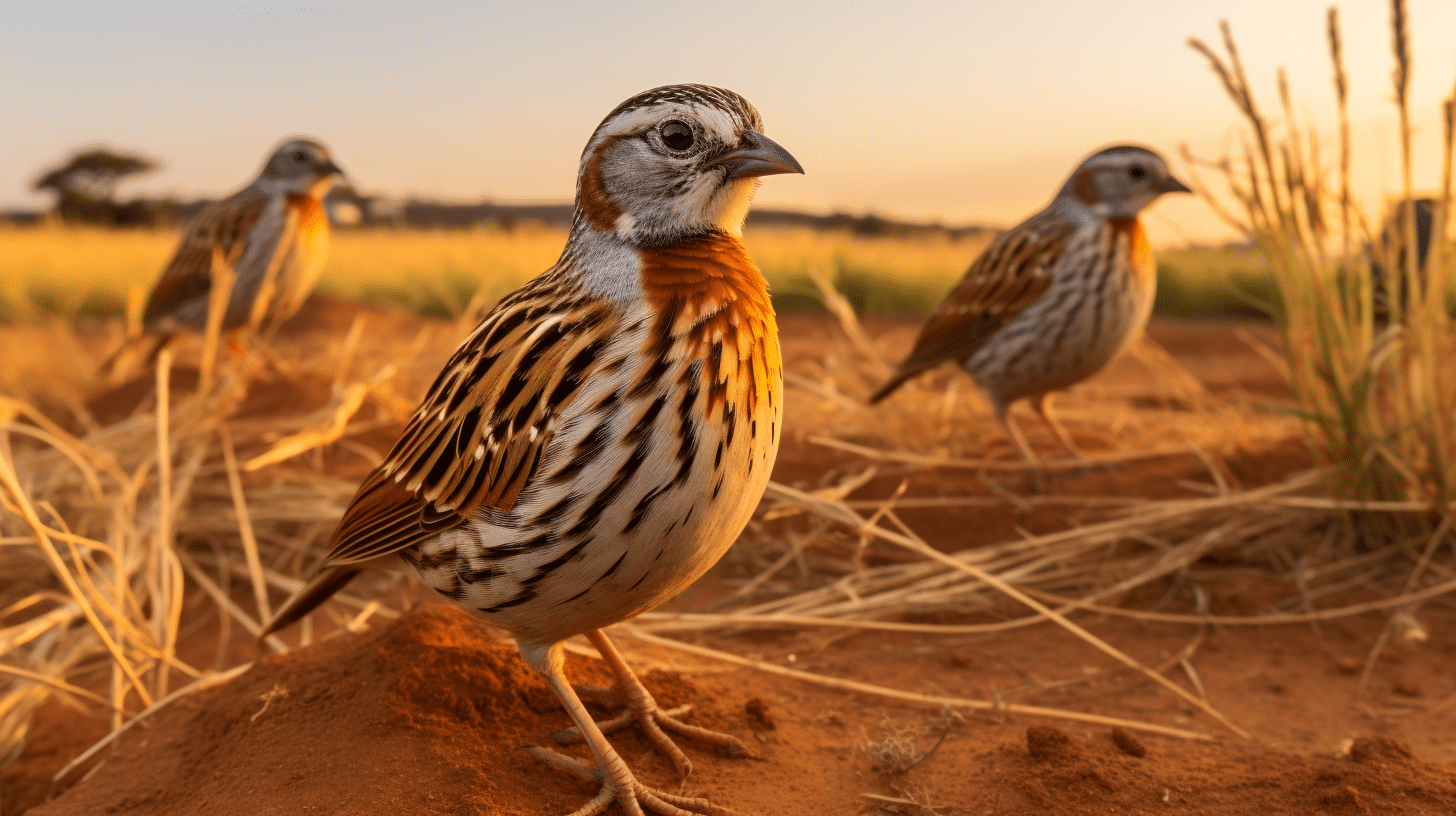How can such a small bird in Kenya be causing such a furore? This little bird is the reason why many Kenyans are smiling all the way to the bank. It is a dream come true in the field of nutrition and alternative medicine in Kenya due to its myriads of benefits, among them curing cancer and a host of other lifestyle diseases in Kenya. With the prevalence of such diseases, people in Kenya have shifted from consuming highly processed foods to natural foods like wild meat, fruits and spring water. No doctor or nutritionist in Kenya in their right mind would advise anyone who wants to eat healthy to consume eggs. Eggs can cause you to add weight and also increase cholesterol levels in the blood. But the story is different with quail eggs in Kenya. They are the only dietetic eggs in the world. People are busy making money ’restoring men’s vitality’ via the sale of the eggs. It is recommended for ageing men in Kenya since it increases their libido and sexual drive. The quail eggs improve the blood circulation and strengthen the heart muscles therefore increasing stamina. They help to reduce prostate cancer in Kenya since the phosphorus, vitamin B, D, and E nourish the prostate gland.
In history, the quail bird was cited as a brilliant source of protein in ancient Egypt. There were a lot of mouths to feed in the pyramid sites. Those who were not employed in the sites were either farming wheat and fruit or keeping quail. After establishing that the bird was nutrient packed people took up the practice, and there was endemic rearing of the bird throughout the Egyptian empire. This seeped to other parts of the globe, including Kenya. These birds were so common in Egypt that they had their own hieroglyph (ancient Egyptian writing).
Closer home, a lot of people are taking up the farming in Kenya as a commercial enterprise due to the low input and maintenance cost required. In comparison to chicken farming in Kenya, quail farming is a more viable venture. A mature hen consumes about 150 grams a day while the quail consumes 20 to 30 grams in Kenya. While a kg of quail meat is kshs 500 a kilo of chicken is kshs 300.The bird rears an egg daily just like chicken, but a chicken egg is kshs 12 while a quail egg is kshs 15-18. The high prices of quail eggs in Kenya are due to the demand both by tourists and locals in Kenya. The nutritional and health benefits also contribute to this difference in Kenya too.
Cooked or raw the eggs have a nutritional value of up to four times than the chicken eggs in Kenya. Quail egg contains 7.5 more iron, 5 times more phosphorus, 15 times more vitamin B2 and six times more vitamin B1. The quail eggs in Kenya are also packed with vital minerals such as calcium, zinc, sulphur and potassium. Due to the high iron content they prevent and even reduce anaemia which is a disease caused by iron deficiency in the body.
Both eggs and meat are rich in proteins, and they help in muscle development in Kenya. They are low in carbohydrates, fats and sugars, and they are an excellent food to consume when dieting. They contain good cholesterol and, therefore reduce the event of heart diseases and high blood pressure.
Among other benefits, are strengthening hair, curing arthritis, gastritis, improving memory and brain activity and development, strengthening the immune system, slowing down ageing of organs, and improving the skin appearance and complexion. The eggs are also used in the cosmetic industry in Kenya as a face and hair mask.
The bird was hunted and consumed by some communities in Kenya. The meat is a delicacy In Nyanza Kenya. Hotels in the city of Nairobi are also including the meal in their menu. For example, Carnivore, a prestigious hotel in Nairobi serves the quail meat. Quail is a small bird, and it is easy to rear and look after. In Kenya, there are a few organizations that have been stated. Top of the agenda is to acquire and invest to produce the highest quality quail both for the domestic and international market.
With the demand of quail meat and eggs increasing in Kenya, many Kenyans have identified the niche and set up farms. Anyone willing to start on this enterprise must get a permit from Kenya Wildlife Service (KWS) in Kenya because the bird is part of wildlife and one has to be authorized to rear the bird. A small fee of about 500 kshs is paid, and the KWS also give information to potential farmers in Kenya. Take for instance a farmer in Kenya\’s sub urban areas who wants to start a quail farm of about 200 birds. KWS in Kenya will tell him about established farmers in the region so that the new farmer can liaise with them and share information with others in Kenya. This includes how to best care for the birds to achieve the maximum production in Kenya in terms of egg production, disease control, rearing, construction and market, both domestic and international. KWS will also keep their details in a database so that they can monitor the new farms.
Quail in Kenya as a form of livestock also comes with its challenges. The chicks are like a thumb high and are very delicate. Any fluctuations in the weather will have adverse effects on the flock by mass deaths in Kenya. If it is too cold they will clump together and suffocate. Therefore one has to check on the temperature, humidity and air supply in Kenya. Due to their thumb size they can easily drown when they are being watered thus one must improvise a small feeder.
These birds are wild and don’t brood the eggs therefore, one must have an incubator to ensure that the egg is kept in the correct conditions (temperature and air supply) from laying to hatching. The incubators in Kenya could be imported or made locally but are a tad expensive. One could also improvise if one understood the technicalities involved. If an individual in Kenya wanted to start a farm, the best way to do this would be to buy chicks as opposed to buying eggs. The chicks should be more than seven days old because they are delicate and could die in transit or upon arrival due to change in weather from their birth home to their new home. This is the new wonder bird. Forget the chicken. Go quail farming in Kenya!



0 comments